About the network
Anti-fascism has played a vital role in the history of the global left, but its different variations have had an equally important role for broader sections of society engaged in defending democracy from fascism and the far right.
This network aims at creating an international scholarly hub for the study of anti-fascist ideas and movements from the 1920s to the present both to promote knowledge exchange and to articulate new methodological and conceptual interventions for the transnational/global analysis of the anti-fascist tradition.
Specifically, we hope to connect researchers and ongoing research projects looking at various aspects of anti-fascist histories as well as their circulation, persistence and mutations.
By adopting a spatial approach to anti-fascism’s iterations, we intend to explore the still largely unmapped spatial-social dimensions of anti-fascist memory alongside its historical intersections with parallel social and cultural movements, such as nationalism, anti-colonialism and feminism.
The Anti-Fascism Studies Network was founded in Manchester in May 2024 on the initiative of Franscesca Billiani, Kasper Braskén, Cristina Diac and Hugo García.
Research aims
Existing scholarship has mainly focused on the struggle against fascism during the interwar period in traditional European contexts, while neglecting its post-1945 periodic resurfacing in response to perceived social and political authoritarian threats and its role in non-European struggles, such as the colonial liberation and civil rights movements.
To address this gap, our approach stresses the interconnectedness of anti-fascism with other important issues and sources of identity, such as class, ethnicity, religion, and gender.
By exploring anti-fascist trajectories during the past 100 years, we strive to analyse how anti-fascist responses have been articulated within specific communities, such as exiles, dissidents and immigrant communities around the world.
We invite scholars to join the network to further explore related topics and to participate in organising conference panels, workshops and plan future research.
Our network asks:
- How did transnational networks come into existence and functioned?
- What role did they play in fostering forms of social cohesion and resilience and in articulating new geo-political alliances?
- How did they interact with their societies and shape the public debate on fascism?
- How and why did they decay, mutate and resurface? How did they cultivate a culture and a memory of themselves?
- How did they shape individual and collective trajectories and identities?
- How have anti-fascist ideas and practices been adopted and reconceptualised in different parts of the world?
Steering group
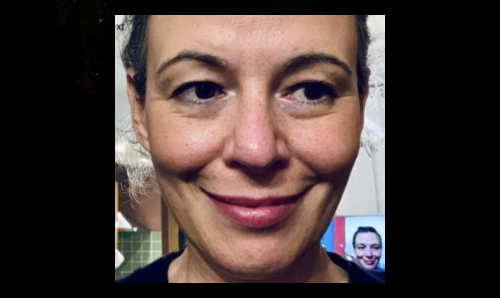
Francesca Billiani, (The University of Manchester)
I am a professor of Italian at The University of Manchester. My research focuses on the Fascist period, literary journals, modernism, history of publishing, and intellectual history.
I am the author of a monograph on the politics of translation in Italy (Culture nazionali e narrazioni straniere, Italia 1903-1943), co-author of a monograph on architecture and the novel during the Fascist regime (Architecture and the Novel under the Italian Fascist Regime, 2019), and author of Fascist Modernism in Italy. Arts and Regimes is out with I.B. Tauris/Bloomsbury, 2021.
I am currently writing a short monograph on the geographies and histories of Public art in Italy in the 20th century.
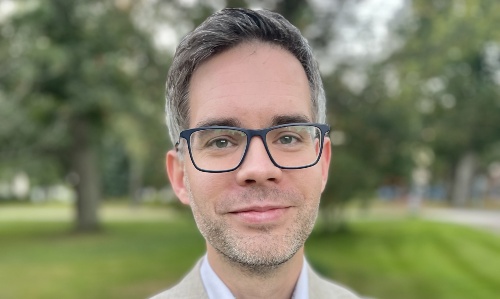
Kasper Braskén (University of Helsinki)
I am a historian of global and transnational antifascism, internationalism, solidarity movements, and the history of international communism.
In my ongoing research project I study antifascist urban politics in Cape Town, London, New York City and Chicago in the mid 20th century.
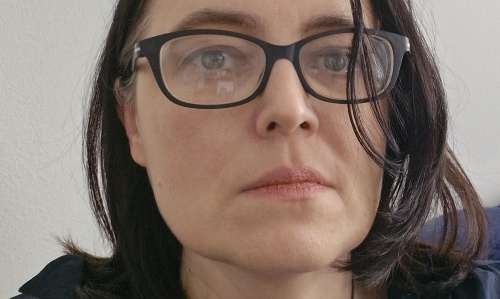
Cristina Diac (National Institute for the Study of Totalitarianism, Bucharest)
I work on history of the European left, communist networks, transnational political movements, political radicalism in the XXth century, transnational history, the social history of politics, autobiographies and other ego-documents.

Hugo Garcia Fernandez (Universidad Autónoma de Madrid)
Hugo García is an associate professor of Modern History at the Universidad Autónoma de Madrid, a member of the research groups Escalas and GIGEFRA and a former visiting researcher at the École des Hautes Études en Sciences Sociales and the École normale supérieure (Paris).
He has published widely on the ideological and cultural dimensions of the Spanish Civil War and the transnational history of interwar antifascism, most notably The Truth About Spain! Mobilizing British Public Opinion, 1922-1945 (Sussex Academic Press, 2010) and the edited volumes Rethinking Antifascism: History, Memory and Politics, 1922 to the Present (Berghahn Books, 2016) and Transnational Antifascism: Agents, Networks, Circulations (Contemporary European History, 2016).
His latest publication is the co-authored book Hispanic Utopias: A Historical Reader (Peter Lang, 2025).
Associated researchers
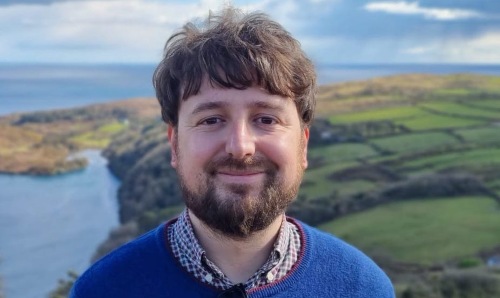
- Short Bio: Dr Guido Bartolini is a scholar of Italian studies and memory studies. He has published extensively on the representation of Fascism and World War II in Italian culture, and he has edited volumes and special issues related to memory, Fascism, and responsibility. He co-chairs the Memory and Literature Working Group of the Memory Studies Association (MSA).
- Research interest: Italian literature; cultural memory studies; memory theory; World War II; Italian Fascism; Italian colonialism; responsibility; complicity; implication; dealing with the past.
- Contact information: Guido.Bartolini@ugent.be
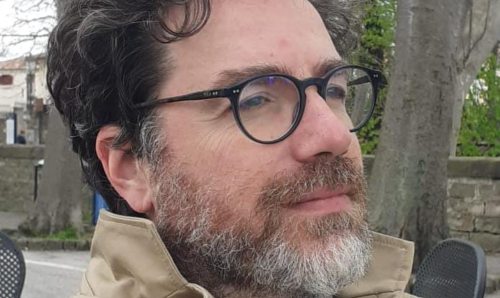
- Short Bio: Marco Bresciani is Associate Professor at the Department of Political and Social Sciences of the University of Florence. He has received fellowships at the Scuola Normale Superiore (Pisa), Ecole Normale Supérieure (Paris), Istituto Nazionale per la Storia del Movimento di Liberazione (Milano), Remarque Institute for European Studies (New York University), the Centre de Recherches Politiques R. Aron (EHESS, Paris), the Centre for Advanced Studies in Rijeka, the University of Zagreb, the Institute for Contemporary History of Ljubljana.
His main research field are the political and intellectual of Italian and European antifascism and anti-totalitarianism, the political and social history of fascism, nationalism and conservatism in interwar Europe, with a special focus on the post-Habsburg Upper Adriatic, and on socialism and liberalism in the transformations and transitions between the 1970s and 1990s.
He has published several contributions on these topics, and among them a work on the antifascist revolutionary group of “Giustizia e Libertà” (Learning from the Enemy. An Intellectual History of European Antifascism, Verso Books, London 2024), an edited volumed on Conservatives and Right Radicals in Interwar Europe (Routledge, London 2021). - Research Interests: antifascism, antitotalitarianism, socialism, liberalism, Fascism, exile, French intellectuals, Habsburg empire, transitions.
- Contact information: marco.bresciani@unifi.it

- Short bio: Dr Alexander D. Brown is a cultural historian with particular focus on the German Democratic Republic, antifascism, state-socialist memory culture and the politics of ideology in the German context. He previously worked as a Research Associate on the AHRC-funded project Knowing the Secret Police: Secrecy and Knowledge in East German Society before taking up a Leverhulme Early Career Fellowship at the University of Liverpool, where he teaches on both Holocaust and GDR history, culture and memory. His first book, Paul Merker, the GDR, and the Politics of Memory: ‘Purging Cosmopolitanism’? (Palgrave Macmillan, 2024), offers a critical ideological-history of post-1990 representation of the Merker affair and interrogates the uses of antifascism, antisemitism and state-mandated memory in unified Germany. He is currently developing a dual research programme: a social and cultural history of Jews in the GDR, and a study of the GDR’s internationalist solidarity with national-liberation movements in the global south.
- Research Interests: Memory politics; Ideology and memory theory; Fascism and antifascism; The German Democratic Republic (GDR); The Holocaust/Judeocide in German and transnational legal, cultural and political memory; Jewish life and belonging in the GDR; Transnational anti-imperialism and the GDR’s engagements with national-liberation movements
- Contact information: a.d.brown2@liverpool.ac.uk / alexander.d.brown1989@gmail.com.

- Short Bio: Professor Nigel Copsey is Professor (Research) of Modern History at Teesside University, UK. His major publications include Anti-Fascism in Britain (2017); (co-ed) Varieties of Anti-Fascism (2010); (co-ed) Anti-Fascism in the Nordic Countries (2019); (co-ed) Anti-Fascism in a Global Perspective (2020); and (with Kasper Braskén) Anti-Fascism: A Global History (forthcoming).
- Research Interests: Historical and Contemporary Anti-Fascisms.
- Contact information: N.Copsey@tees.ac.uk

- Bio: Sandra McGee Deutsch is Professor Emerita of History at the University of Texas at El Paso, USA.
She is the author of Counterrevolution in Argentina, 1900-1932: The Argentine Patriotic League (1986); Las Derechas: The Extreme Right in Argentina, Brazil, and Chile, 1890-1939 (1999); Crossing Borders, Claiming a Nation: A History of Argentine Jewish Women, 1880-1955 (2010); and Gendering Antifascism: Women’s Activism in Argentina and the World, 1918-1947 (2023).
She has co-edited (with Ronald H. Dolkart) The Argentine Right: Its History and Intellectual Origins, 1910 to the Present (1993); (with Kathleen M. Blee) Women of the Right: Comparisons and Interplay across Borders (2012); and (with Jorge A. Nállim), Antifascism(s) in Latin America and the Caribbean: From the Margins to the Center (2025).
Currently she working on a book project tentatively titled Fighting Fascism in Argentina, Chile, and Uruguay, 1930s-1940s: Culture, Race, and Masculinity. - Research interests: transnational antifascism, fascism and other right-wing movements, solidarity, gender, race, and Latin American Jews.
- Contact information: sdeutsch@utep.edu
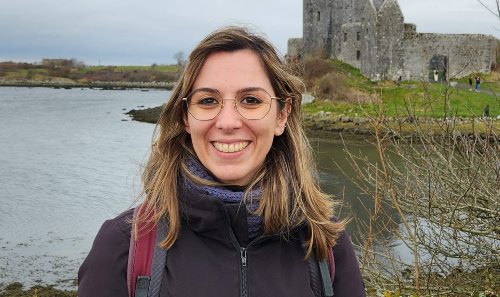
- Short Bio: Manuela Di Franco is an MSCA Fellow at Ghent University, researching Americanisation and gender in Italian comics. Her work focuses on Italian popular culture under Fascism, including press, comics, and censorship. She has held positions at the University of Michigan and Toronto, where she founded the TICS research group.
- Research Interests: Fascism, popular culture, comics, censorship, gender, Americanisation, translation, press, media, ideology.
- Contact information: Manuela.DiFranco@ugent.be
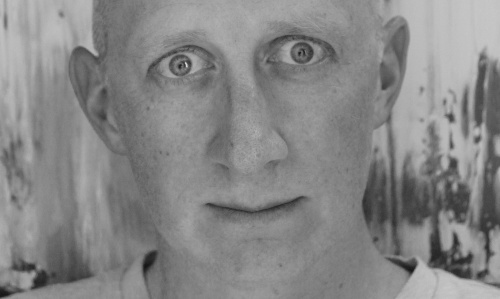
- Short Bio: Joseph Fronczak has taught in the Department of History at Princeton University since 2015. He is the author of Everything Is Possible: Antifascism and the Left in the Age of Fascism (2023). His next book, The Ages of Antifascism, will be published soon by Cambridge University Press.
- Research interests: Transnational histories of fascism and antifascism.
- Contact information: Joseph.Fronczak@princeton.edu

- Short bio: Frank Jacob is Professor of Global History at Nord Universitet, Norway. He received a PhD in Japanese Studies from Erlangen University in 2012 and a DBA in intercultural management from University Lyon III in 2021. His main research fields are revolution theory, comparative revolutionary history, transnational anarchism and modern German and Japanese history. Jacob is author or editor of around 150 books that have been published in English, German, Spanish and Russian.
- Email: frank.jacob@nord.no
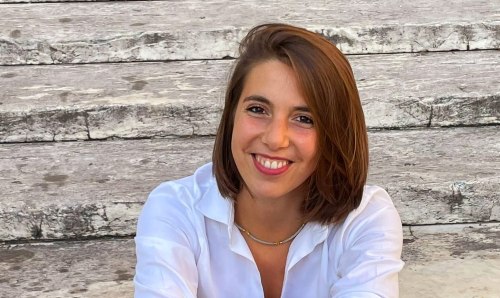
- Short Bio: Mara Josi is a Lecturer/Assistant Professor in Italian Studies at University College Dublin. Her research focuses on Italian 20th and 21st-century literature and culture, investigating the dynamic interplay between history, memory, and literature. Mara’s publications reflect her interest in innovative research methodologies to the study of literature, with a particular emphasis on commemorative landscapes, Fascist discrimination and persecution, the role of Jewish women in anti-Fascist movements and the Resistance, Holocaust culture, including Jewish literary texts from the Nazi occupation of Italy, and women’s literature and history
Mara’s first book, Rome, 16 October 1943. History, Memory, Literature, explores the influence of literary texts on the individual and collective memory of the largest single round-up and deportation of Jews from Italy during the Nazi occupation. In 2024, it was awarded the Premio Internazionale Ennio Flaiano di Italianistica. An updated new edition has been translated into Italian and will be published by Viella in 2025 under the title: Reti di memoria. La letteratura italiana del 16 ottobre 1943.
Before joining UCD, she was an IRC and FWO Postdoctoral Fellow at University College Dublin and Ghent University, respectively, and a lecturer at the University of Manchester. - Research interests: Italian 20th and 21st-century literature; Holocaust literature and culture; Nazi occupation of Italy; Italian Jewish women’s resistance, cultural memory studies, memory theory, and theory of emotions.
- Contact information: mara.josi1@ucd.ie
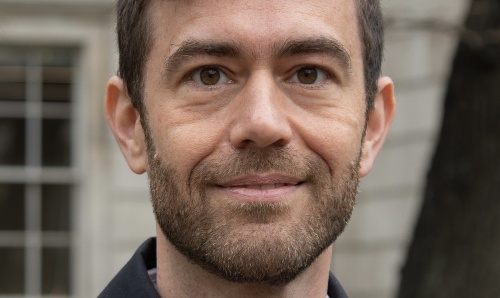
- Short Bio: Zoltán Kékesi is historian at the Centre for Collective Violence, Holocaust and Genocide Studies at University College London. He holds a PhD from ELTE, Budapest. His recent book is Memory in Hungarian Fascism: A Cultural History (2023). He is co-chairing the Antifascist Memory Working Group at the Memory Studies Association.
- Research interests: (anti-)fascism studies; memory studies; Holocaust; Jewish history; Leftist internationalism
- Contact information: z.kekesi@ucl.ac.uk, website: www.zoltankekesi.com

- Short bio: Ariel Mae Lambe is Associate Professor in the Department of History at the University of Connecticut. At UConn’s Waterbury Campus, she teaches Latin American, Caribbean, and U.S. history courses, and at UConn’s Storrs Campus, she advises and teaches M.A. and Ph.D. students. She is a scholar of Cuban political history of the republican period (1902–1958) and the history of transnational antifascism, work that culminated in her 2019 book No Barrier Can Contain It: Cuban Antifascism and the Spanish Civil War (University of North Carolina Press, Envisioning Cuba Series). Drawing from this work, she has published and presented on various elements of the history of Cuban antifascism, including anarchist antifascism in Cuba, Masonic antifascism in Cuba, Black Cuban antifascism, Cuban medical volunteers in Spain, and the legacy of antifascism in revolutionary Cuba. She is co-editor of Cuban Constituencies: Uncovering Political Actors in the Republic, forthcoming from University of Florida Press.
- Research interest: Cuba, political exile, transnational activism, leftist activism, Black activism, women's activism, activist networks, Spanish Civil War, antifascism.
- Contact information: ariel.lambe@uconn.edu.

- Short Bio: I am professor of European history at Newcastle University, UK, and interested in the history of Socialism (and other political ideologies), antifascism, internationalism and anti-colonialism. My latest book is “Writing against Hitler: Hermann Budzislawski and the Making of Twentieth-Century Socialism” (Wisconsin University Press 2025). I am currently working on German reparations after 1945 and on a book about the antifascist photographer Fred Stein (1909-1967).
- Research interest: antifascism, Fascism, internationalism, reparations, anti-colonialism, political violence, photography, mass media, legal history, historiography.
- Contact information: daniel.siemens@newcastle.ac.uk

- Short Bio: Mercedes Yusta Rodrigo is Full Professor in History of Modern Spain at the Université Paris 8 and director of the Laboratoire d’Etudes Romanes in the same University.
She is the author of three monographs, several papers and book chapters, and has also edited 17 collective books and journal issues.
Her research focuses on the resistance against Franco's dictatorship, especially anti-fascist women's organizations in Spain and their transnational links. More recently she has opened a new line of research about Republican exile in France, with a particular focus on humanitarian aid in a gendered approach.
Among others, she co-edited with Hugo Garcia, Crisitna Climaco and Xavier Tabet Rethinking Antifascism. History, Memory and Politics, 1922 to the Present (Berghahn Books, 2014) and with Laurent Douzou La Résistance à l’épreuve du genre. Hommes et femmes dans les résistances antifascists en Europe du Sud (Presses Universitaires de Rennes, 2018).
Her last book is, with François Godicheau and Pierre Salmon, La guerre d’Espagne (Tallandier, 2026). - Research interests: Historical and transnational antifascism, Communism, Gender, Women’s history, Humanitarian relief, Exil and forced migrations.
- Contact information: mercedes.yusta@univ-paris8.fr
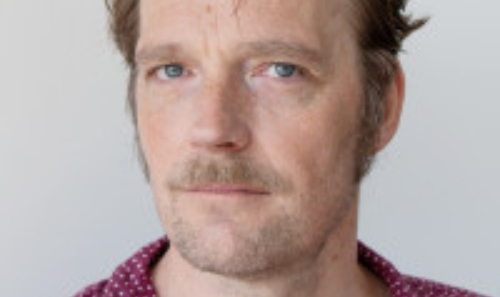
- Short Bio: Máté Zombory (PhD) is sociologist, associate professor at Eötvös Loránd University, Budapest. Currently he is finishing the book The Lévai Archives. Documenting History as a Response to Fascism. He is co-chairing the Antifascist Memory Working Group at the Memory Studies Association.
- Research interests: (anti-)fascism studies; memory studies; social movements; contemporary history; Leftist internationalism, social theory.
- Contact information: matezombory@yahoo.com
Ongoing projects
- Kasper Braskén (PI) “Locating Global Protest against the Extreme Right: Anti-Fascism, Anti-Racism and Internationalism in Multiethnic Metropoles”
(LGP) funded by the Research Council of Finland (Project no. 355478; 2023–2027) - Guido Bartolini (PI): “Facing up to the dictatorial past. Cultural memory and the responsibility for fascism in post-1990 Italian literature”
Research funded by The Research Foundation – Flanders (FWO) through the Senior Postdoctoral Fellowship project number 669165/1233723N.
News and events
New publications and essays
- Cambridge University Press has just published Sandra McGee Deutsch and Jorge A. Nállim, co-editors, Antifascism(s) in Latin America and the Caribbean: From the Margins to the Center.
- The Helsinki Notebooks: Global dispatches against fascism and the far right.
- Marco Bresciani: Learning from the Enemy: An Intellectual History of Antifascism in Interwar Europe (Verso, 2024).
Past conferences
- Imagining the Anti-Fascist City: Contested Geographies of Resistance and Solidarity in Helsinki.
